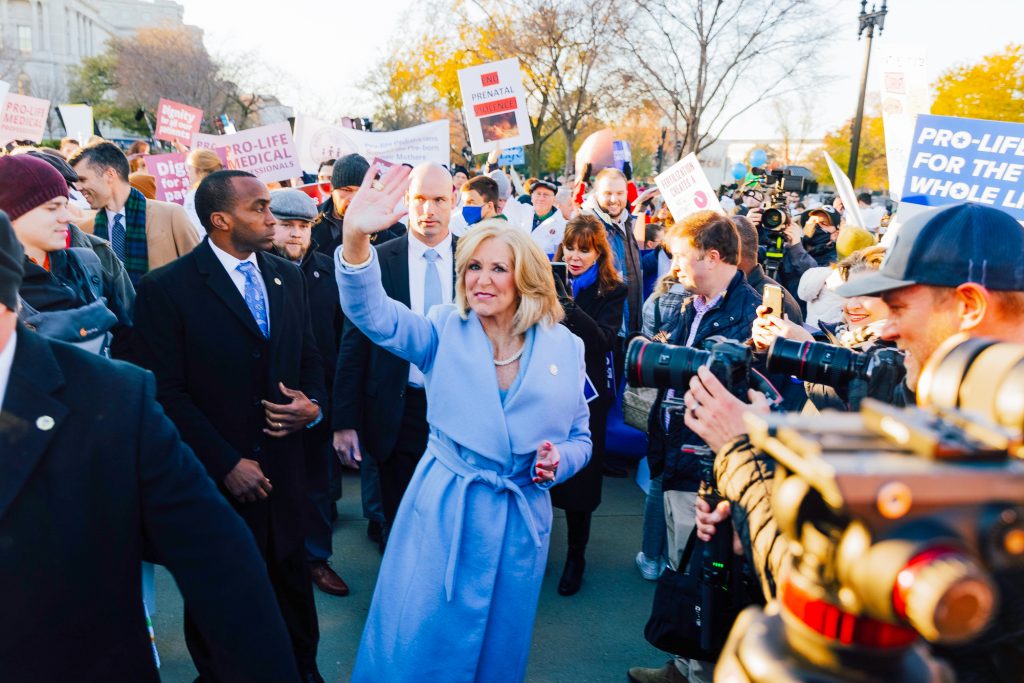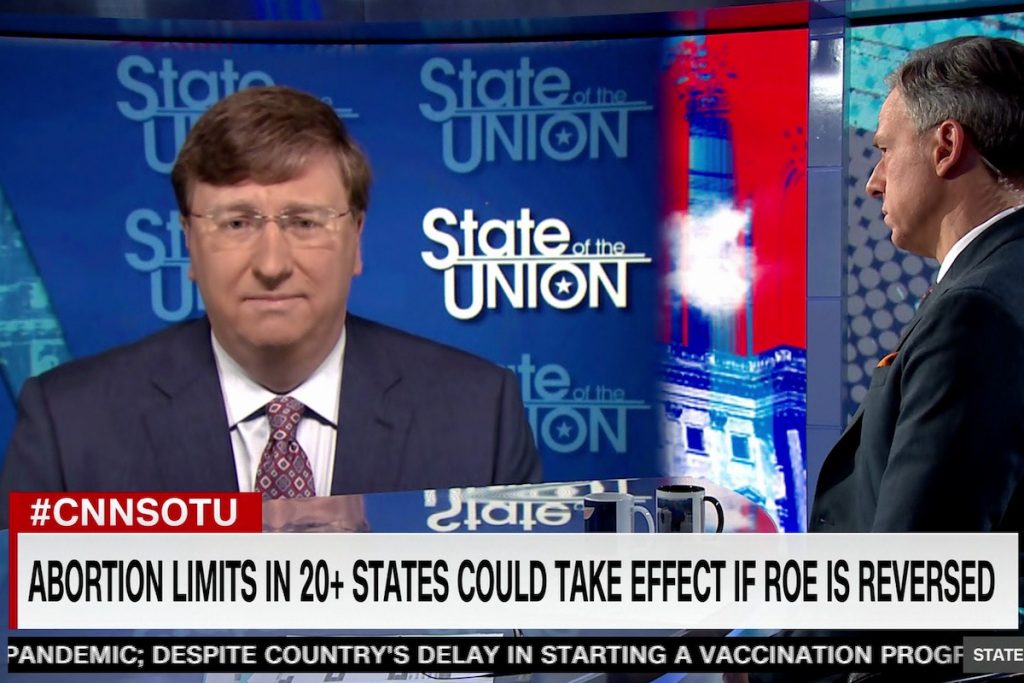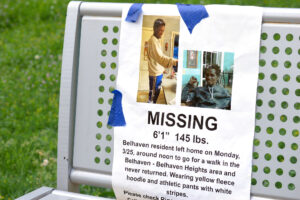Mississippi Gov. Tate Reeves confirmed this weekend that the state will swiftly move to enact a law banning nearly all abortions starting from the moment of conception if the U.S. Supreme Court strikes down Roe v. Wade, the 1973 ruling that declared abortion a constitutionally protected right.
During oral arguments in Dobbs v. Jackson Women’s Health Organization last week, the State of Mississippi asked the nation’s high court to uphold a 15-week abortion ban that Reeves helped pass in 2018 and to do so by overturning the almost 49-year-old precedent.
But if the court overturned Roe v. Wade, it would also trigger a 2007 Mississippi law that would “prohibit abortions in the state of Mississippi” at any stage “except in cases where necessary for the preservation of the mother’s life or where the pregnancy was caused by rape.” Anyone violating that law by providing an abortion would face up to 10 years in prison, the same as Mississippi’s pre-Roe era abortion laws.
During a Sunday interview with Reeves on CNN’s State of the Union, host Jake Tapper asked Reeves if he would enforce the state’s 2007 “almost total abortion ban” if the court overturned Roe v. Wade.
“Yeah, Jake, that is a yes because if you believe as I believe very strongly that that innocent unborn child in the mother’s womb is in fact a child, the most important word when we talk about unborn children is not ‘unborn,’ it’s ‘children.’”
Under the 2007 trigger law, Mississippi Attorney General Lynn Fitch would be charged with implementing the near total ban on abortion from conception. Her office led the defense of Mississippi’s 15-week ban during oral arguments in the Dobbs case on Dec. 1.
“At such time as the Attorney General of Mississippi determines that the United States Supreme Court has overruled the decision of Roe v. Wade … the Attorney General shall publish his determination of that fact in the administrative bulletin published by the Secretary of State as provided in Section 25-43-2.101, Mississippi Code of 1972,” reads the 2007 trigger law, whose authors apparently did not foresee the possibility of a woman attorney general.

For months, Mississippi abortion-rights organizers, anticipating Roe v. Wade’s downfall, have focused on boosting pre-existing efforts to teach people how to self-manage or perform their own abortions.
“I really do believe the Supreme Court is going to uphold the Mississippi challenge, and what’s going to happen is the South is going to be devoid of abortion rights,” SHERO Mississippi Director Michelle Colon told the Mississippi Free Press in October.
The U.S. Supreme Court’s 6-to-3 conservative majority appeared friendly to the State’s arguments during the Dobbs hearing last week, though a ruling likely will not come until mid-2022. The court’s three liberal justices raised concerns that overturning Roe v. Wade would be a political move that could undermine the court’s legitimacy. Justice Sonia Sotomayor warned that it could create a “stench … in the public perception that the Constitution and its reading are just political acts.”
“If people believe it’s all political, how will we survive?” she asked. “How will the court survive?”
In 2011, Mississippians rejected the Personhood Amendment, a ballot referendum whose sponsors aimed to ban virtually all abortions from the moment of fertilization with no specific exceptions for rape, incest or life of the mother. Though voters rejected it at the polls 58%-42%, Mississippi lawmakers continued to pass laws aimed at limiting or banning abortion access, including the 15-week ban in 2018 and a six-week ban in 2019.
Watch the Mississippi Free Press for ongoing coverage of the effort to overturn Roe v. Wade from Mississippi. See our full abortion-related coverage here.










